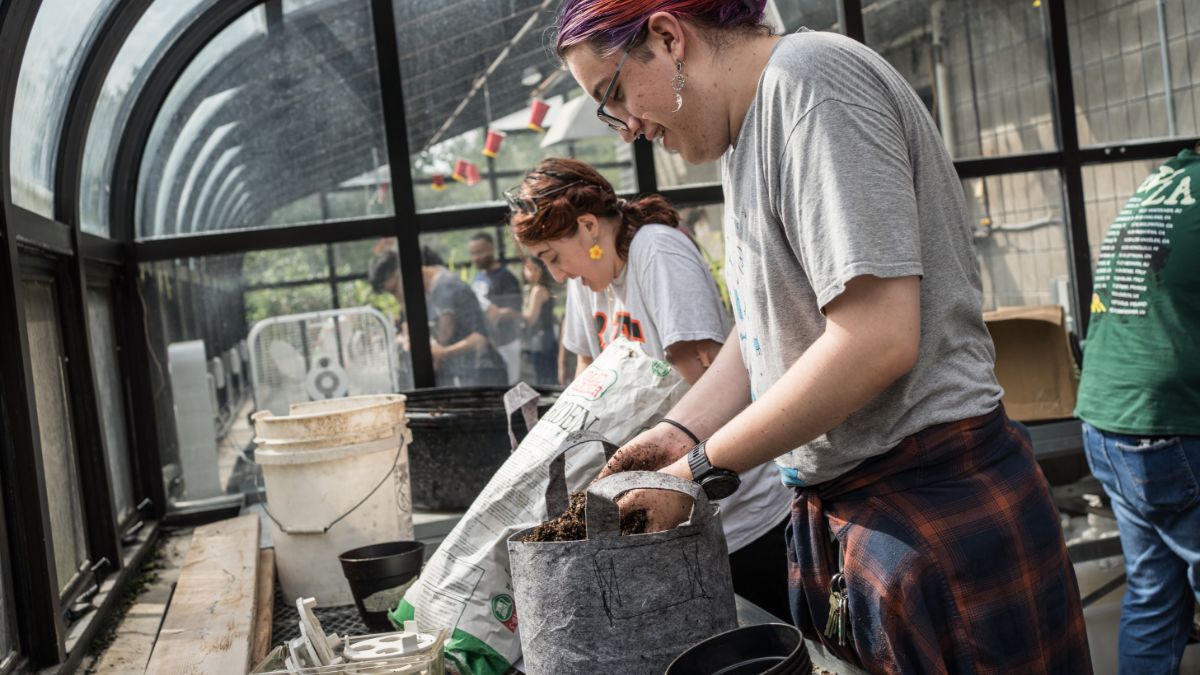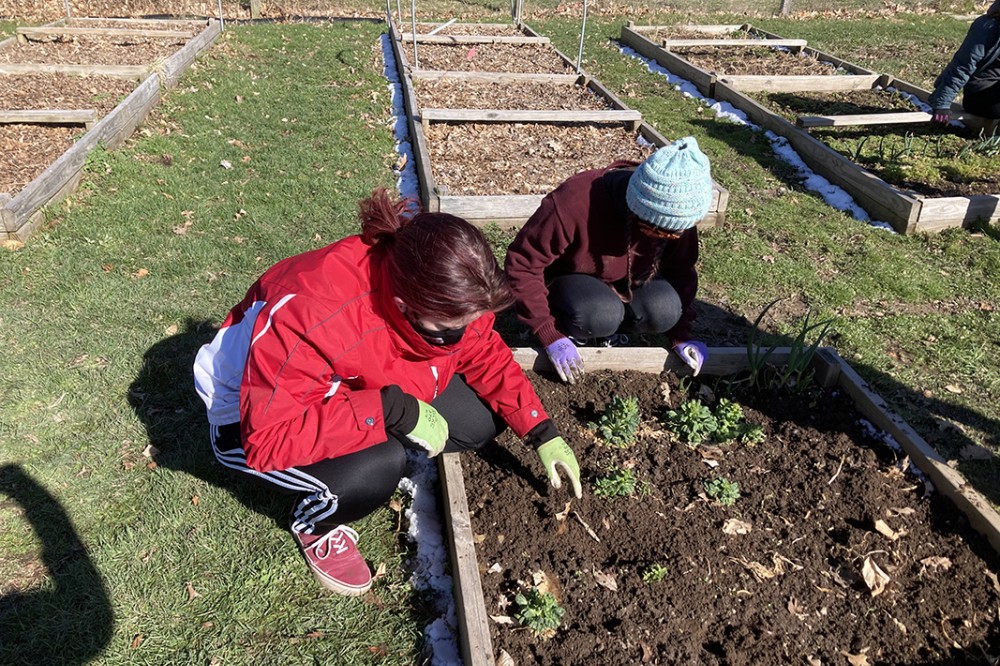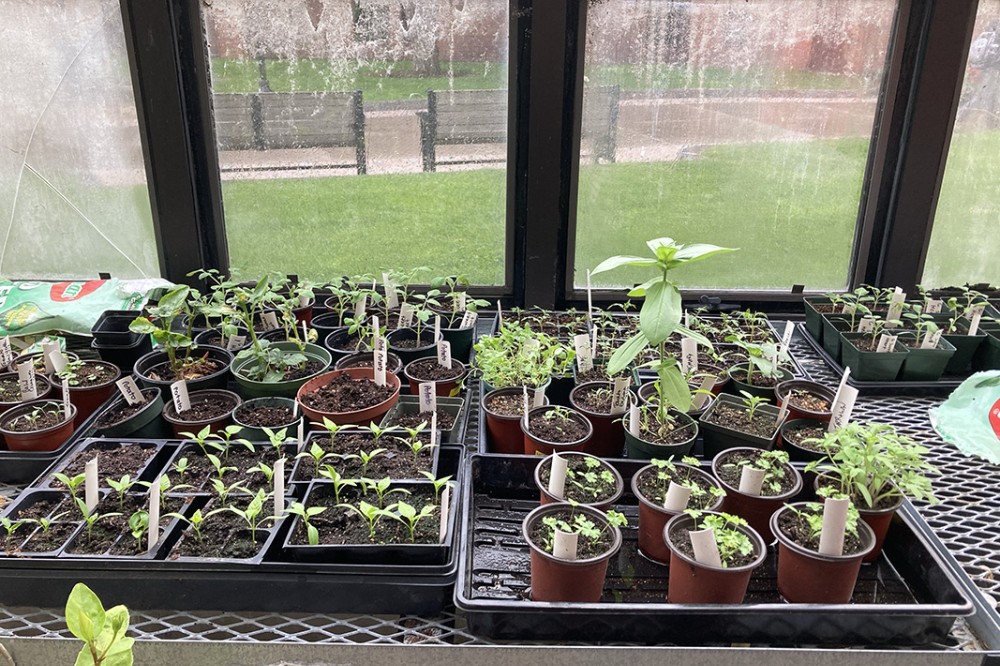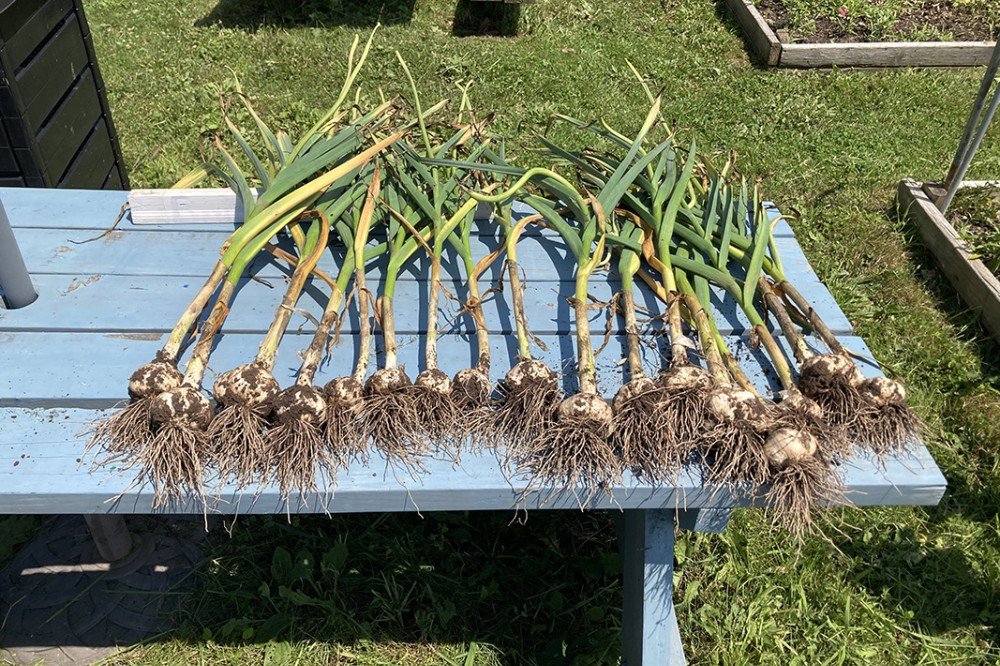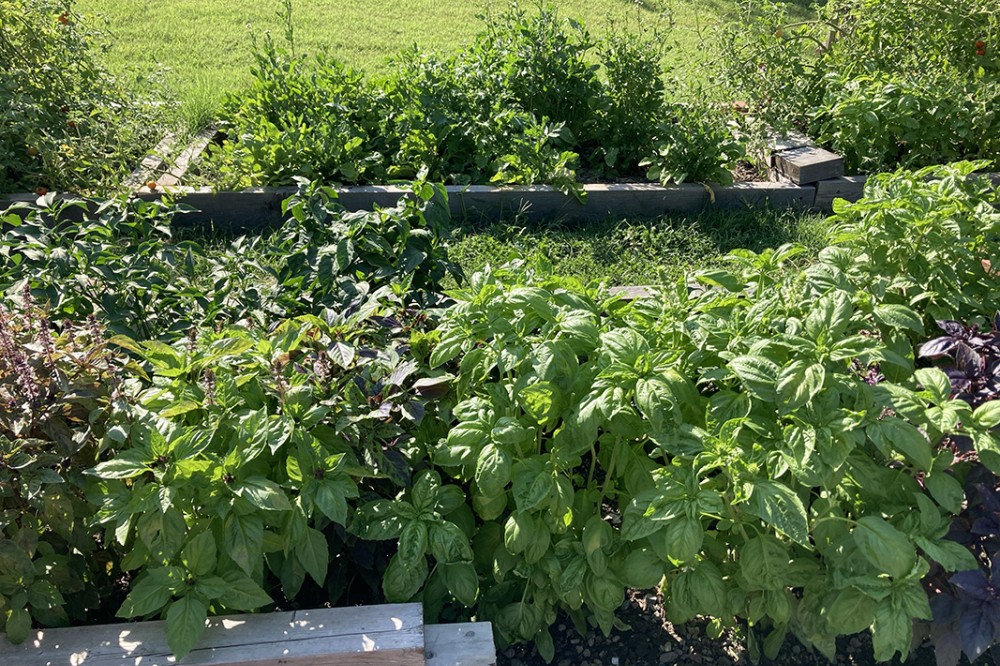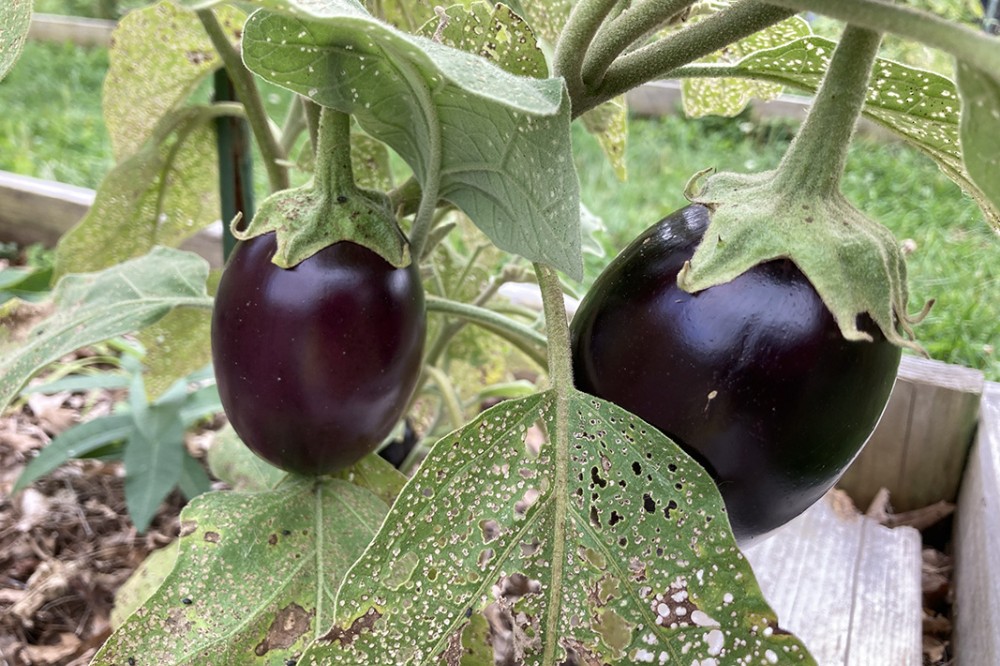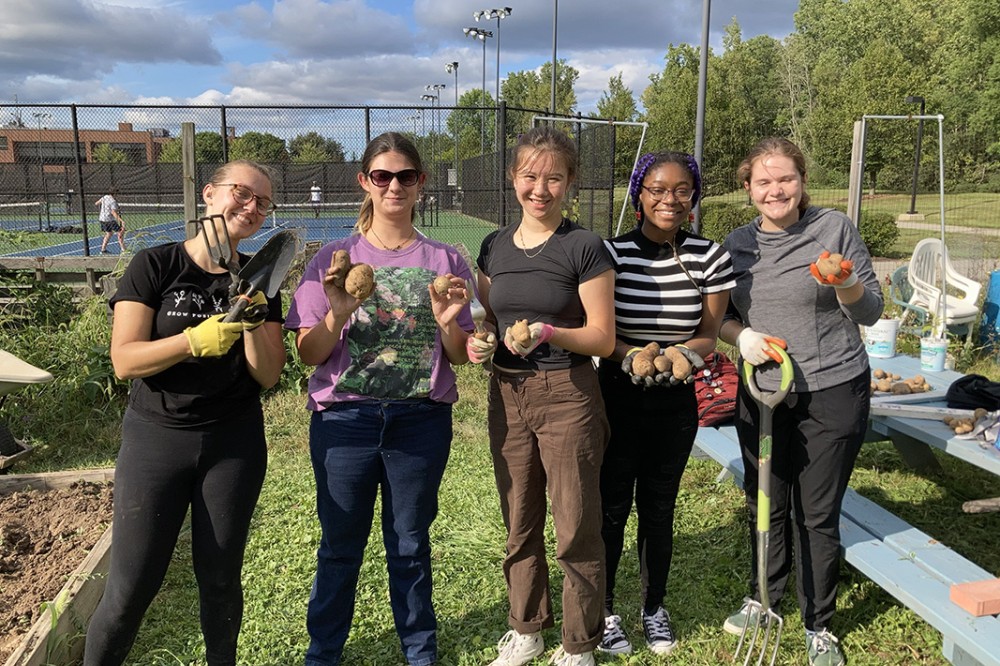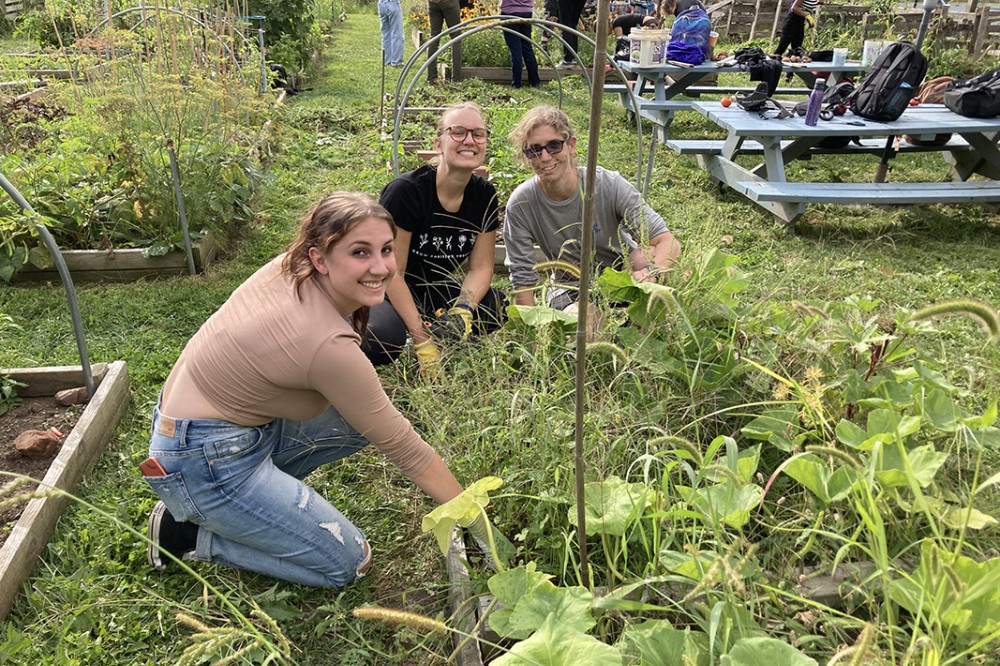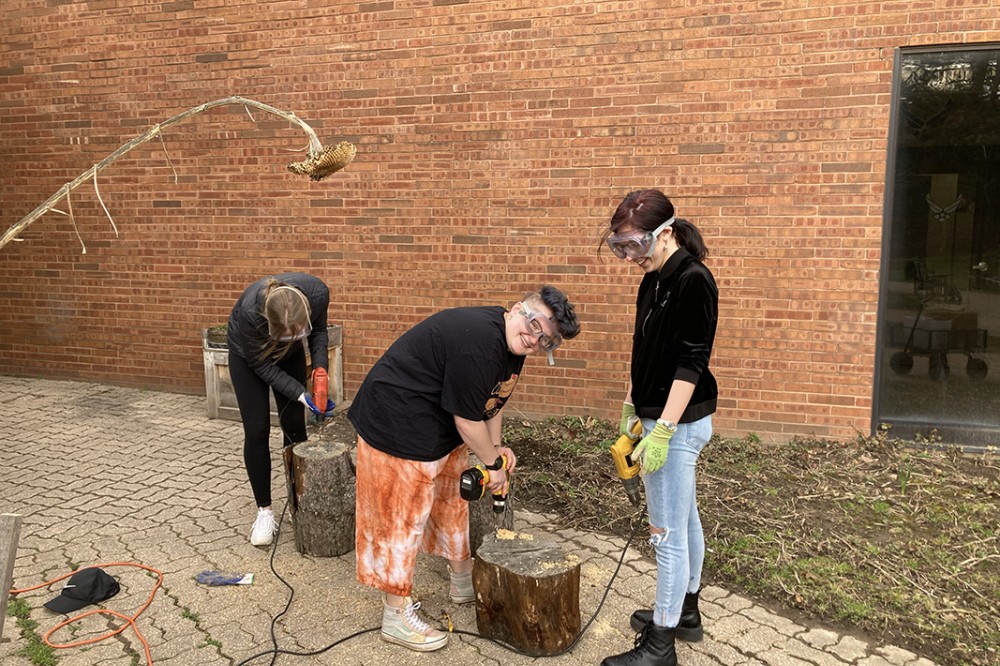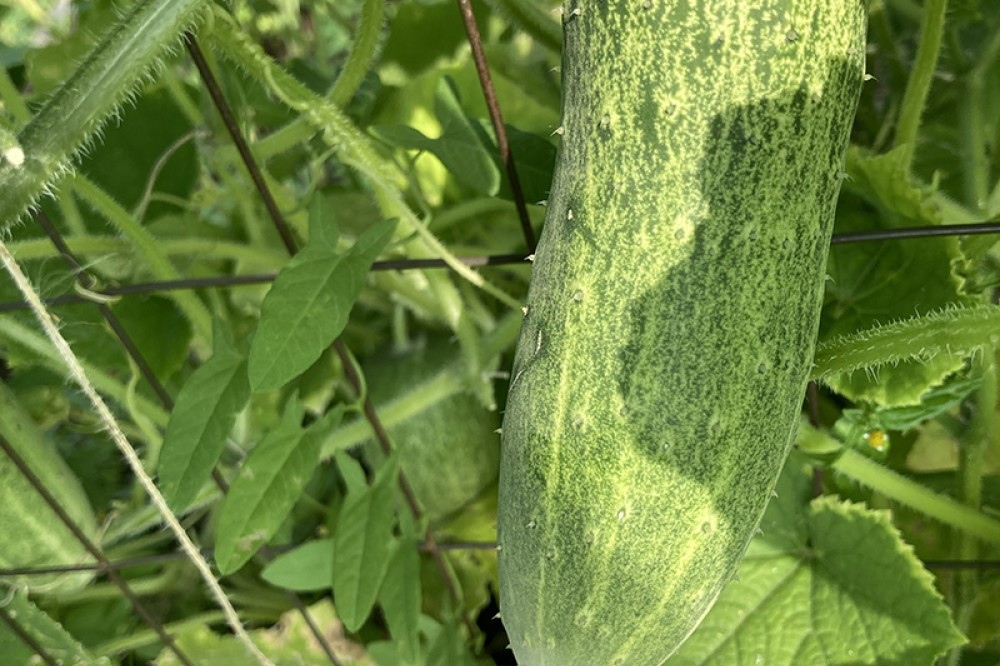Community Garden
The RIT Community Garden is located near the tennis courts, and in the Ross/ROTC Quad. The main garden was started in 2009 and is fully fenced. Our smaller garden in the Ross/ROTC quad was started in 2020. Both gardens are open to all members of the RIT Community and are also used for teaching. The main garden consists of 8’ x 4’ raised beds that are available for groups or individuals to use during the growing season. We also have communal areas where we grow crops for all garden users. The Ross/ROTC garden is communal with a strong emphasis on plants that attract birds and pollinating insects, as well as easy to grow vegetables and flowers (herbs, cherry tomatoes, beans, cucumbers, arugula, garlic, flowers for cutting).
The garden is a university entity but has strong links to the School of Life Sciences and RIT Sustainability. Several courses use the gardens, including Science in the Garden, Biology of Plants, Urban Ecology, Greening of RIT, Ornithology, Soil Science, and Painting the Natural World.
Ways to get involved
- If you will be at RIT during the summer, you may request your own plot. You will be responsible for growing and watering the crops you plant, as well as keeping the weeds under control. We also ask that you contribute to the upkeep of the communal areas.
- If you are not around in the summer… don’t worry! We have plenty of ways you can be involved.
- Friday Gardening: this is primarily a student activity, but all are welcome. We meet from 3-5 pm on Fridays in fall, 4-5 pm in spring. When the weather is nice, we meet in the garden, and work together on garden maintenance, harvesting crops from the communal areas, turning compost, and getting the gardens ready for winter. We also plant fall greens and garlic.
- Garden maintenance: If you have a skill such as constructing things, turning compost, mowing paths, and maintaining fences, we would love to hear from you, even if Friday gardening doesn’t fit your schedule.
- Student groups (Fraternities, sororities, special interest groups and clubs): the garden is a great place for Community Service projects. We can arrange a separate session for your group. Examples of projects to tackle might include putting the garden to bed at the end of the season, tending the compost piles, construction, clearing unused parts of the garden. These projects tend to work best with many people for 2-3 hours.
FAQ
Please do not grow perennial plants in the raised beds. They tend to take over. We have a communal herb garden for perennial herbs (mint, sage, thyme, lavender, chives, oregano). We also have a strawberry bed.
Please use only organic fertilizers and pesticides. We try to keep the garden organic.
Examples:
- Espoma Garden tone and other varieties
- Turfline organic gardener (I suspect this is not completely organic, but it is inexpensive and available locally at Country Max)
- Fox Farm happy frog and others
- Bloom and root products
We have a collection of garden tools such as spades, garden forks, rakes, hoes and trowels in the main garden. We also have gardening gloves. If you use the communal tools, please wash them after use and return them to the shed or storage chest. You may prefer to use your own tools. However, we cannot be responsible for loss or damage to your tools/gloves. Please wear closed toe and closed heel shoes in the garden.
Yes, we have faucets and hoses in both gardens. We ask that you coil up the hoses when you are finished watering, turn off the water and release the pressure in the hose. Please do NOT use sprinklers or soaker hoses when you are not present in the garden.
We grow some tomato, pepper, and basil plants each year. These are available for individual plots. We also use some of these plants for the Communal areas. There are limited quantities of seeds available. Seed sharing and plant swapping are encouraged.
Some good sources of seed:
- Fruition seeds (local, Naples NY)
- Baker’s Creek
- High Mowing seeds
- Harris seeds (Local)










